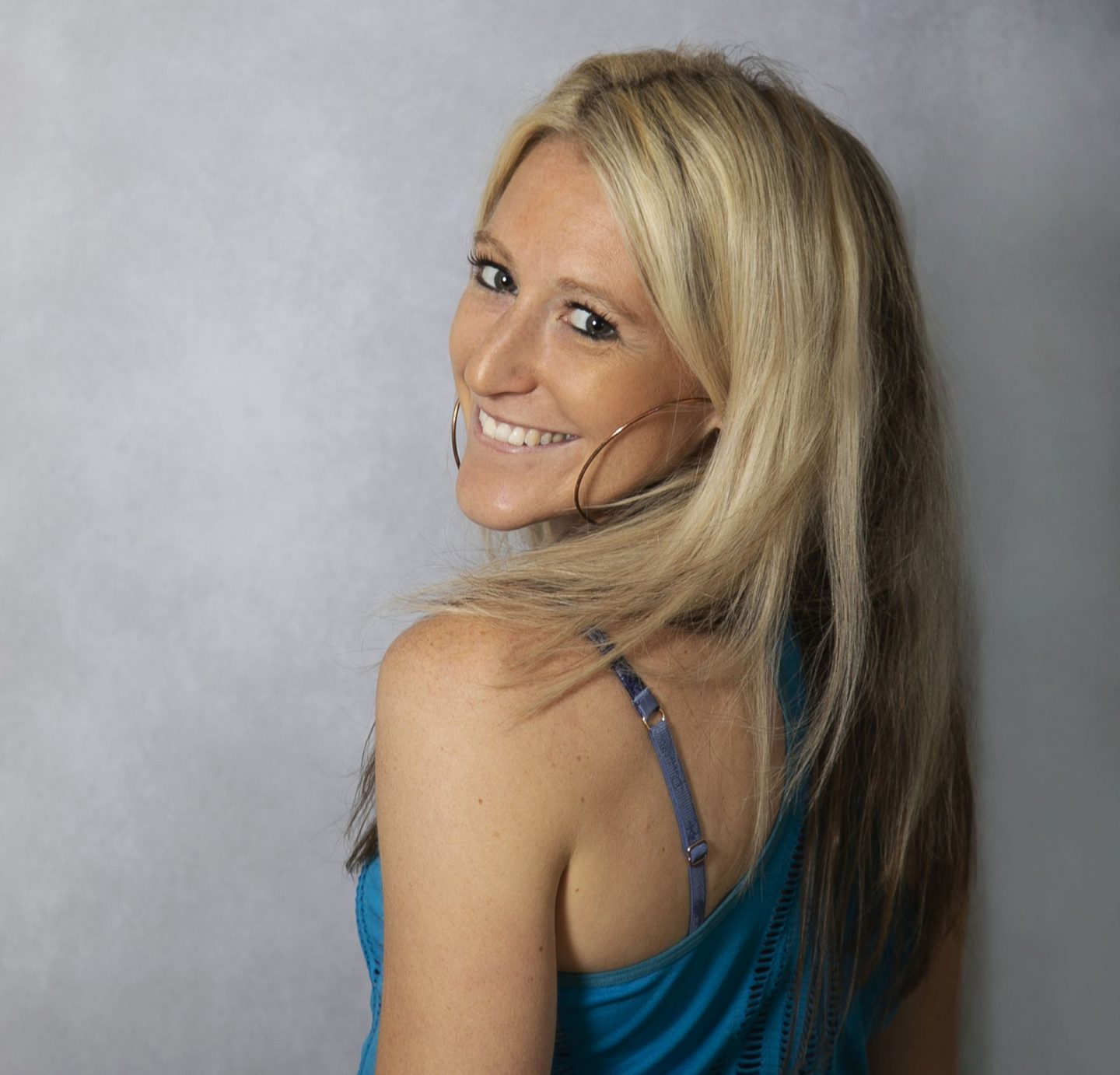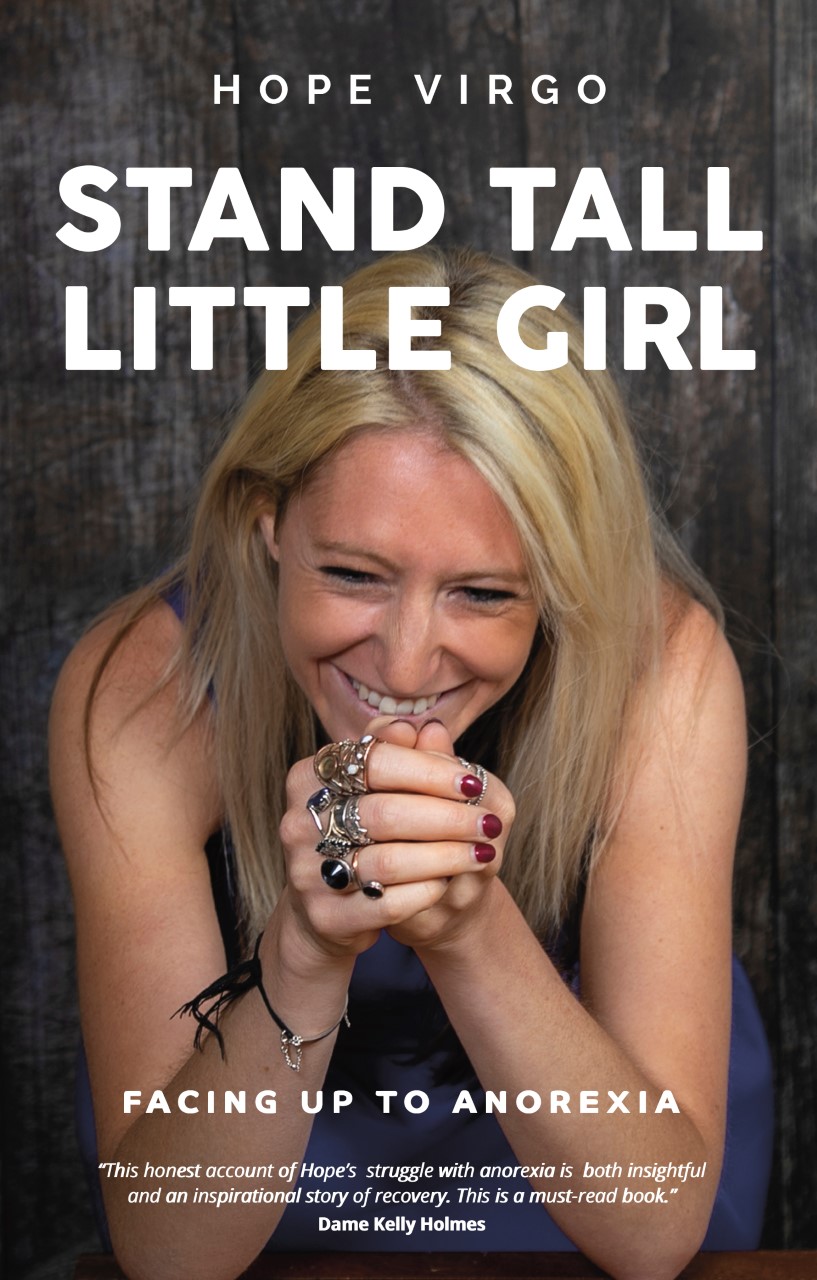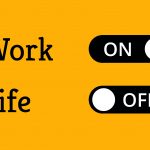Have you ever given any thought to how your behaviour at the dinner table could impact on your child’s relationship with food? I hadn’t until I spoke to eating disorder and mental health campaigner Hope Virgo. They can either be a haven of calm where family bonds are developed or places where heated debate and arguments take place, allowing youngsters to associate eating with negative thoughts.

Hope has been living with eating disorders (EDs)since she was a child and the dinner table was to have a pivotal influence on how she reacted to food. She’s written about her experiences in, Stand Tall Little Girl and campaigns to raise awareness of EDs.
The latest phase of her campaign is called #LetstalkEDs and aims to do just that: Get people talking about eating disorders. I was keen to explore with Hope what us parents could be doing to help our children so they don’t develop EDs themselves.
I was also very keen to raise the issue of how these disorders impact on boys and men and to discover if there was more that could be done to get dads involved in these discussions. Have a read, see what you think and if you want to find out more about Hope’s story, do check out Stand Tall Little Girl.
Just to kick things off, can you please talk a bit about your experiences with eating disorders?
“I developed an eating disorder when I was about 12 or 13 years old. The disorder that I developed was anorexia, which is an eating disorder around restricting behaviour, it’s about control.
“For some people, including myself, it was also wrapped up with a huge obsession to exercise. I lived with that for about four years before anyone did anything about it, before anyone really noticed that something wasn’t quite right. I ended up being admitted to a mental health hospital when I was 17, where I spent a year in recovery.
You say that you developed the disorder when you were 12 or 13 and it went unnoticed for some years. You were clearly hiding it or it was it not so much of an issue to begin with?
“Yeah, so it did start off quite slowly. I developed it because I had quite a dysfunctional family and couldn’t really fix everyone around me and struggled with that. And I also was sexually abused (by a non family member).
“A combination of both of those things meant that I had to find other ways to cope with what life was throwing at me. At the beginning, it was restricting every now and again. I did a lot of exercise at school, but over that four year period, I gradually began to realise that the more food I skipped and the more exercise I did, the better I felt. I think quite often with eating disorders, they are very, very secretive illnesses.
“You hide a lot, you lie a lot. Certainly in my case, I’m one of five children so it became quite easy to go under that radar in such a way. My dad was working full time and my mum was very busy a lot of the time. I just found ways to get out of eating.
“A big thing for me was causing family argument after family argument, which would mean that I could leave a meal time and I could get out of eating. I think the other thing is that with eating disorders, whilst they do have physical side effects, often the physical side effects take a bit longer to come into fruition. That means that people are struggling for a really long time and no one notices because there isn’t a massive change in appearance. We often wait so long and wait too late to get that aspect of it, making it very difficult to spot.
I’ve got two daughters, one of whom is 11. Being so young and having an eating disorder, well, it pulls at my heart strings. I just can’t imagine it but it’s all too common, right?
“We have seen a massive increase over the last couple of years in younger people getting an eating disorder and particularly over the pandemic. Again, we’re seeing a massive increase in that.
“It’s due to a number of reasons. I think eating disorders are so complex as an illness that is hard to pinpoint exactly what causes them for individuals. Just having that added pressure on a day to day basis, that pressure around body image, the way that society is so fixated on dieting and image and things. It just feels that whole kind of focus is on yourself.
“It is important to start having these conversations at a really early age and to make sure that when you are in your home environment, that you’re not having family arguments over meal times, that meal times are emotionally level and stable places. Otherwise young people will look back at that meal times and just think, oh, if I’m angry, this is how I get out of meal. This is how I say that I’m not OK. So just making sure none of that emotion is wrapped up in it.”
Would you say that was an influence on you? The way your family was behaving around you?
“I would never blame my family for the fact I have an eating disorder, but I think a lot of my family meals were constant, massive arguments. Me and my older brother would bicker quite a bit just sitting around the table.
“There were comments made on kind of portion sizes. As far back as I can remember, pretty much every other meal time someone would storm out of the room.
“I think it is really difficult as a family when that happens, because that might be your only time in the evening where you all sat around together and there might be different emotions and heated stuff flying around.
“For me now, it will be really important when I have my own family to make sure that any of those difficult conversations or any of those kind of bad news or whatever it might be, you have all of that away from the meal. That way dinner stays a level, neutral place.”
Moving on, I know you’ve launched a new campaign called #LetsTalkEDs, or should I say a new part of your existing campaign called #DumpTheScales, yes?
“My whole plan is to get the nation talking about eating disorders. I think quite often we shy away from talking about eating disorders. People were scared of getting things wrong. What that means is that a lot of people are just struggling and suffering in silence.
“I wanted to take my original campaign, which was called #DumpTheScales to another level. #DumpTheScales was all about diagnosis and making sure that people could get support.
“When we think of eating disorders, people today might have this image in their head. We often think of a white teenage girl who’s extremely underweight.
“Actually, eating disorders affect people from all different ages, people from all different backgrounds, people from different races. And they also affect boys as well as girls.
“They do affect fewer men, but it’s still something that needs to be talked about. We need to start normalising those conversations, otherwise people just won’t be able to reach out for support.”
When we were swapping emails to set this up, I explained I was going to ask about this. I spend a lot of time in the online world and it’s not uncommon for me to see mums, and I’m afraid it is very often mums and not dads, say they talk to their daughters about eating disorders. I’m always quick off the mark to go back to respond and ask: ‘Why aren’t you talking to your sons?’
I know that the number of boys and men affected isn’t as high as it is for women, but I feel there are two aspects to this. Firstly, my understanding is that it is a growing issue among men and boys. Secondly, boys and men need to be able to spot the signs in their mothers, their sisters, their partners. And I think we have to get boys and men talking about this more. Is that a fair point?
“Yeah, I 100 percent agree with you. I think also in men, eating disorders can present themselves in different ways. It can present itself in either exercise or an obsession to build muscle.
“We do see men who struggle with anorexia and bulimia, but sometimes that bulimic trait isn’t just the bingeing and purging. Sometimes it is the obsession with exercise. And because we don’t talk about it enough with men, particularly as young boys, it means that quite often they don’t feel like anyone will really get where they’re coming from. They feel quite embarrassed because they probably still see it as a teenage girls’ illness and it also then just stops them reaching out for that support.
“I do know from the campaigning work that I do, that I’ve come across guys who have gone to the doctor presenting with an eating disorder, but the doctor hasn’t diagnosed them because they’re not female. Again, that in itself just fuels that kind of stigma, that eating disorders are something that just affects teenage girls and don’t affect men at all. Massive respect for calling. Mum’s out on that!”
I must make the point that it is equally important to have this recognised as an issue affecting both genders. That said, is there a need to get dads discussing these things more? If I think about myself and my experiences with other fathers, eating disorders are hardly ever spoken about.
“It might just be that it feels like a harder conversation to have because of the whole body image aspect of it all
“It is important and there has been some recent research that’s come out showing a number of fathers, particularly after they have children, are developing eating disorders, but because their Body Mass Index isn’t falling within that kind of ridiculously low category, they are not able to get support. I think it is a conversation that we need to be having. We need to be more honest and learn how to spot these signs in the people around you.
“We also need to look a little bit more broadly at how the disorder could present itself, because it will present itself differently depending on the person’s gender. There’s no denying that, but it’s learning the signs and being able to move across genders to make it in such a way that people can talk about it.
“A huge part of the work I do is trying to empower people to talk about eating disorders and getting people to know that actually it’s OK to talk about it. It’s OK to get it wrong, but it’s about starting that initial conversation.”

You’ve just said something very interesting because it’s no great secret that rates of depression and mental health issues are much more prominent among men when they first become fathers. That’s partly because they’re trying to figure out how they fit in to the family, and adjusting to being dads. That can manifest itself in various different ways.
Moving on, I was going to ask about covid-19 and lockdown. This must be a really challenging time for people who have eating disorders. Are there are trends you’ve noticed or are you aware of what the impact has been?
“I definitely have seen a massive increase in the number of people struggling. There has been some serious research done already highlighting that as an issue.
“From more anecdotal evidence, just the number of people who are now contacting me on social media, who are afraid of that uncertainty, afraid of what’s going on: This has also soared massively. I think the main issues that seem to come up was at the start of the pandemic. I’m sure everyone can remember rushing to the supermarket to try and get hold of food and then the media frenzy around stockpiling.
“For people with eating disorders, it was really difficult. We found it harder to get hold of those foods that we would categorise as ‘safe.’ And when I talk about safe foods, it’s foods that we don’t feel guilty having and foods that are just easy to have within our diet.
“There’s also been this increase in discussion around exercise and obesity, which, again, when you’ve had an eating disorder, can be a trigger. I know on my Instagram right now, everywhere I look, someone is posting about exercise.
“I understand that people need to make a living with that, but actually it’s about doing it in such a way that can be appropriate for everybody and not making people feel bad about it.
“I went to an outside fitness class, actually, and the guy was like:
‘We all need to shift our lockdown lard.’
“I was like:
‘Well, we don’t really.’
“It is those kind of little comments that might seem really harmless to other people, but actually, when you’ve had an eating disorder, your brain can twist and mull over those words.
“I think a big thing as well is uncertainty. I think uncertainty affects everybody, but when you’ve had an eating disorder, the eating disorder thrives on uncertainty.
“I’m 11 years into my recovery and I am in a very good space, but there was a two-week period where I was really, really worried about the gyms closing. I was worried about getting hold of food that I wanted to eat and also just worried about being stuck in my flat all the time with, like, no fitness equipment.
“It really frustrated me. At the time, that part of my brain, well, I kind of think the eating disorder was trying to suck me back in, trying to give me this sense of control, telling me if I calorie counted or if I restricted a bit, then I’d feel better again.
“That’s the really scary thing with eating disorders: It tries to row you back in when you’re feeling really down or you’re feeling insecure about something. You get this instant gratification when you do it, so you go to go back to those behaviours.
“For me, it has just been really important to look at how we can be supporting people in a better way, how we can be supporting people remotely with things like eating disorders, particularly if people are still in that kind of weight change phase. It’s actually looking at how we can adapt services to be done in such a way that actually people do feel comfortable with themselves.
“Or if you’ve got young people at home, how are you supporting with them? Are you sitting down with them at the start of the week thinking: ‘Actually, you guys are going to be here if you at home schooling every single day? How can we work out the lunches and dinners? And even if you’ve got young people who are now back at school, it’s bringing them into that conversation to help them feel in control about things and help them to have that safe space, to keep talking about things and to keep sharing what they’re actually going through and how they’re feeling.”
What would be your top three tips to any mum and dad? What should we be looking out for among our kids? What should we keep in mind? What should we be doing?
“I think a big one is normalising the conversation at home. So having time out in your week to talk about mental health. Maybe every couple of months having a conversation about eating disorders, having a conversation about how people are feeling and putting aside that time to really do that in a proper way where you do have time to sit down and listen.
“I think it’s important as parents and carers, not to bodycheck constantly in front of your kids. Don’t talk about what food you’re eating. I’ve had young people come up to me after running workshops with them and they will say things like: ‘Oh, I can’t have bread,’ or ‘my mum looks in the mirror,’
“I’m not saying that will cause an eating disorder, but what it’s doing is creating an unsafe environment for that young person where they will start to scrutinise themselves so much more.
“Something that we touched on at the start was making sure that your meal times are a Neutral Place, making sure that they’re safe places for that young person.
“If you do have someone that is struggling, that you’re supporting and reminding them that the eating disorder isn’t about the weight, it’s not about body image, it’s about so much more than that.
“Make sure that you are checking in with that person after meals and on the run up to certain times of the year, such as Christmas or Easter. Just making sure you’ve got that line of communication constantly open with that person.”
Where can people find out more about your work?
“Information about #LetsTalkEDs is on my website, and there is a 20 minute educational video. We have two fantastic male case studies in that video, talking a little bit more about actually what it’s like to be a male and be struggling with food, so do have a look at that.
“I’m also on Instagram and Twitter. If anyone has had anything that’s come up for them today or something that’s really resonated with you, feel free to drop me a message and I can try and push you to somewhere that might be able to help or just give you a bit more advice and feedback on what I think as well.”








2 thoughts on “Learning about eating disorders with Hope Virgo”
thank you for this information, your articles are so much better than others.
Thanks for your kind comment. Do check out my other Q&A interviews.